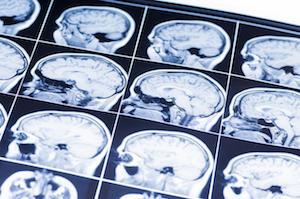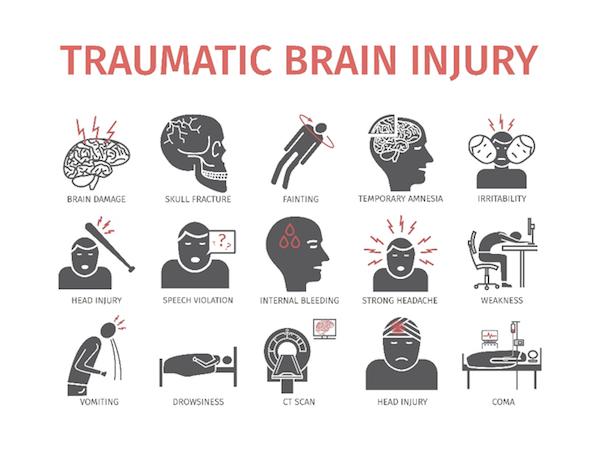Illinois Brain Injury Accident Attorneys
Lawyers for TBI Victims in Naperville, St. Charles and Throughout Illinois

The Centers for Disease Control and Prevention estimates that 3.8 million concussions and 2.8 million traumatic brain injuries occur annually. Brain injuries can range from mild to severe and can be debilitating. People with brain injuries often have difficulty completing their usual activities and may even be prevented from working. The majority of brain injuries are caused by car accidents, fall downs, explosive blasts from a work-related injury, or sports injuries.
Attorney John J. Malm is a member of the Concussion Legacy Foundation’s Chicago Advisory Board and Event Committee, an organization committed to protecting athletes and families through CTE brain research, policy, and education. Through the foundation, John has successfully advocated for those affected by a brain injury. His law firm, John J. Malm & Associates, has successfully helped clients suffering from a brain injury obtain the compensation they deserve. If you or a loved one has suffered a brain injury as a result of a car accident, slip and fall, work-related injury, or sports injury, contact the knowledgeable Illinois personal injury lawyers at John J. Malm & Associates.
What causes brain injuries?
Brain injuries most commonly occur from a car accident or sports injury after a blow or jolt to the body or head. The blow or jolt causes the brain to shift in the skull, which in turn causes disruption to the normal function of the brain. Brain injuries often occur in contact sports, such as football, when an athlete gets hit in the head or falls to the ground. However, brain injuries can easily occur from any hit to the head or body, and are not just limited to high-contact activities.
Types of Brain Injuries
Concussions
According to the Concussion Legacy Foundation, a concussion is a serious injury to the brain resulting from the rapid acceleration or deceleration of brain tissue within the skull, which can cause the brain tissue to change shape and become damaged. The damage to brain cells makes it difficult for the cells to function and communicate, leading to potential long-lasting effects, especially if a person suffers multiple concussions throughout their lifetime.
Traumatic Brain Injuries
According to the Mayo Clinic, traumatic brain injuries typically result from a violent blow or jolt to the head or body. Traumatic brain injuries are classified as either mild, moderate, or severe. The classifications are used to describe the effect of the injury on the function of the brain. For example, mild traumatic brain injuries affect the brain’s cells temporarily, while serious traumatic brain injuries result in bruising, damaged brain tissue, and bleeding in the brain.

Subdural Hematomas
A subdural hematoma is a collection of blood between the layers of tissue that surrounds the brain, which causes increased pressure on the brain. A subdural hematoma is caused by a sudden blow or jolt to the head that tears the blood vessels in the tissue. Subdural hematomas can be life-threatening and often require immediate treatment. Sometimes, surgical intervention is required to remove the blood and relieve the pressure on the brain.
What are the symptoms of a brain injury?
Symptoms of brain injuries include physical symptoms, sensory symptoms, and cognitive symptoms, such as:
- Loss of consciousness
- Feeling dazed, confused, or disoriented
- Vomiting or nausea
- Dizziness
- Headaches
- Body numbness or tingling
- Blurred vision, dilated eyes
- Loss of coordination
- Fatigue or drowsiness
- Ringing in ears
- Difficulty sleeping
- Difficulty with memory or concentration
- Difficulty with speech, slurring words
- Mood changes
- Feeling depressed or anxious
What is the best way to diagnose a brain injury?
Some types of brain injuries are diagnosed using imaging tests, such as CT (computerized tomography) scans or MRI (magnetic resonance imaging) scans. Imaging is used to uncover evidence of bleeding, blood clots, bruised brain tissue, and swelling. However, the majority of brain injuries do not show up on imaging due to the complicated nature of the injury itself. Instead, most brain injuries are diagnosed based on the signs and symptoms exhibited during a comprehensive examination. Initially, physicians utilize the Glasgow Coma Scale to evaluate the severity of a person’s brain injury by assessing the person’s body movements, eye movements, and verbal responses. Glasgow Coma Scale scores from 3 to 8 indicate a severe brain injury, scores from 9 to 12 indicate a moderate brain injury, and scores from 13 to 15 indicate a mild brain injury. Neurologists may use additional, advanced tests to determine the type and severity of a brain injury.
Why is it important to see a physician if I think I have a brain injury?
Even though minor brain injuries may resolve on their own, a physician’s intervention, specifically a neurologist’s intervention, may be needed to prevent long-term complications from brain injuries, such as epilepsy, dementia, Alzheimer’s disease, and Parkinson’s disease. If a brain injury does not resolve through rest, a physician may suggest treatments to target certain symptoms of a brain injury. Treatments for brain injuries include prescription medication, vision therapy, balance therapy, physical therapy, cognitive behavioral therapy, and in some cases, surgical intervention.
Contact the Illinois Personal Injury Lawyers at The Law Offices of John J. Malm & Associates
The knowledgeable attorneys at John J. Malm & Associates have successfully handled complicated cases for our clients who have suffered a brain injury. We are a team of experienced personal injury lawyers who represent individuals and families who have suffered an injury or loss due to an accident. You may be entitled to a substantial settlement if you have been injured. Call 630-527-4177, or 630-524-2323, and speak with Attorney John J. Malm and his team today.









